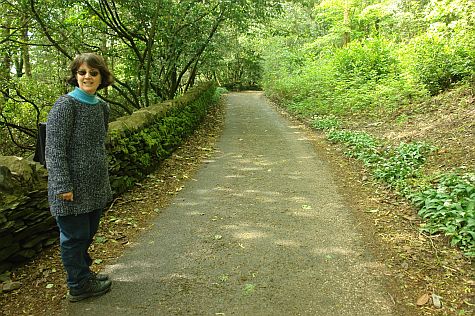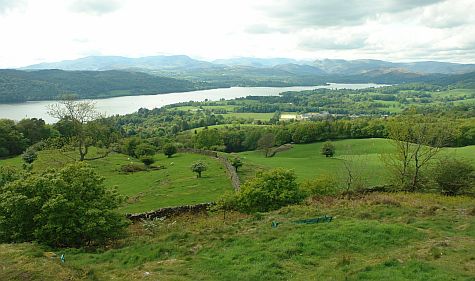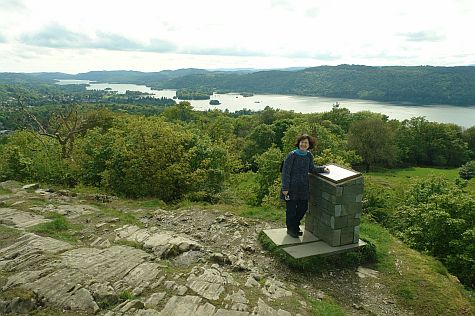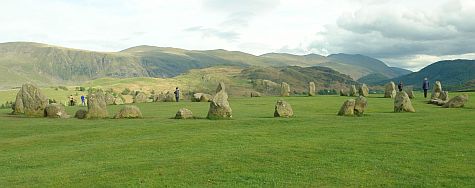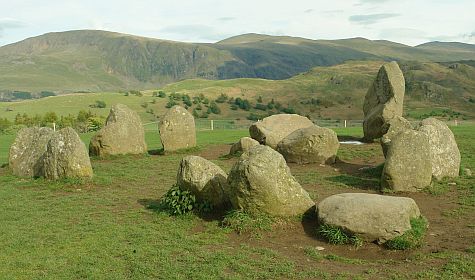Ellen lives in an area promoted with outstanding natural beauty. She picked me up from the train station, and we headed into the Lake District. There’s a path up to Orrest Head, which promises a great view.
The path was rustic, but well-used.
From the top of Orrest Head, there was a clear view of Lake Windermere to the northwest.
The lake stretches a great distance to the southwest.
Ellen hosted me for lunch in the village of Windermere. It seems to be the classic British sort of town, with roads that wind around.
As another sight in the area, Ellen drove us over to Castlerigg, to look at the stone circle.
The circle isn’t as large as Stonehenge, but it’s no less mysterious.
The next morning, Ellen dropped me off at the Carnforth station for the train to York. This station is memorable as the shoot location for the 1945 movie “Brief Encounter”. I’ve never seen this movie, but it was supposed to be scandalous for its time, dealing with cheating on spouses.
I haven’t seen Ellen face-to-face in maybe a decade, so it was good to check up with her. Her contract at one university is up, and she was in the process of negotiating a new contract at a different university. Since American schools are so much into quantitative research these days, it seems as the UK provides some respite for qualitative researchers. Still, since Ellen is a Kellogg MBA (in addition to her Harvard Ph.D.), she seems to be more immersed in research directly with real companies, unlike many of her purely academic peers.

